|
|
In This Issue
-
Elementary, My Dear Reader: Sherlock Holmes in Literature and
Film
-
Why We Study English
-
The Best Thing I Ever Did for my Education was Leave Monmouth
for a Year
-
Survey Says
-
Announcements
Elementary, My Dear Reader: Sherlock Holmes in
Literature and Film
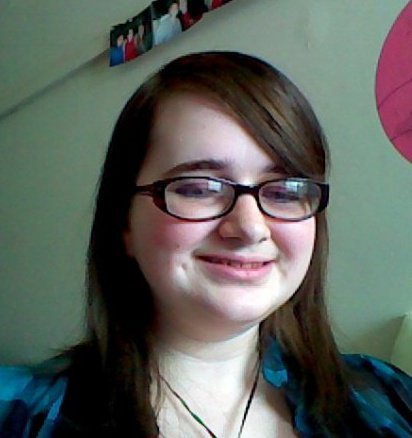 by Katie
Struck by Katie
Struck
Intelligence is the most attractive quality
that a person can possess. People that think
critically and use their knowledge to better the
world outlast those who only rely on outer
appearances or superficial qualities. Sherlock
Holmes is one of those iconic characters that shows
what some critical thought and reasoning can
accomplish. In fact, he’s such an iconic character
that other popular characters in pop culture have
been based on him such as The Doctor from
Doctor Who,
Shawn from
Psych, and Dr. House from
House.
There will also be a second Sherlock Holmes movie,
Sherlock
Holmes: A Game of Shadows, coming out on
December 16th, 2012 which is the sequel to
Sherlock
Holmes. In anticipation of this mystery action
flick, enjoy my thoughts on how the classic Sherlock
Holmes character from Doyle’s short stories to the
revamped movie character.
Since Sherlock Holmes is an extremely
intelligent man who rejects emotions, he does not
make many close friends; however, the best
friendship of Watson and Holmes in the both short
and the movie is a very caring relationship built on
mutual trust and respect. Holmes regularly asks for
Watson’s thoughts on clues and encourages Watson
when he says that there is no way he could infer
information like Holmes does. Also, they call each
other “brother” and “my dear fellow” showing that
they are more than just friends; they’re family.
While both men seem to live separate but connected
lives in the short stories, Holmes seems less
willing to part with Watson in the movie. He even
bribes a fortune teller to tell Watson that his
marriage to Mary will be filled with horrific
doilies, warts, and figurines. Watson expresses his
annoyance at Holmes’ immaturity, but still follows
Holmes to the slaughterhouse to help him. In the
end, both men would be there for each other when it
is important even if it means risking their lives
for each other.
Sherlock Holmes is a man who uses his wit and
intelligence as weapons to catch criminals and solve
mysteries; as a private consultant, Holmes sees his
fair share of violence. In the short stories, Holmes
encourages Watson to bring his army pistol with him
when they run into trouble, but Holmes does not
really rely on weapons. He can knock a gun out of
someone’s hand if he needs to, but he’s not a
physical fighter. He fights people with logic. On
the other hand, Holmes in the movie seems to revel
in his martial arts skills. In one of the beginning
clips of the movie, Holmes immobilizes three
characters through sequentially plotting how to
injure them in the fastest, most effective way
possible. He also ends up beating people with police
sticks and boxing for money. This decision by
filmmakers may have been an attempt to make a
heavily intellectual character more traditionally
tough and violent. While I love a well-choreographed
fight scene every now and then, the movie may have
been more palatable to me without turning one of my
favorite characters into just another action hero.
One quirk that Sherlock Holmes is famous is
focusing on the small details and his logic to solve
large mysteries. In the short stories, he constantly
surprises strangers by knowing details about them
that they thought would not be obvious through
Holmes’ powers of observation and deduction. He
knows where people have travelled from the mud
splatters on their clothes. He theorizes about
suspect’s marriage satisfaction from whether their
clothes seem clean or not. Finally, he sees a
person’s class status in their handwriting. This
quirk of Sherlock Holmes’ translates well from books
to the movie. There is a scene where Holmes, Watson,
and Watson’s fiancé are at a restaurant and Watson’s
fiancé questions whether Holmes can really learn
that much about a stranger from small, observable
details. Holmes then proceeds to deduce that
Watson’s fiancé is a governess with a tall pupil who
flicked ink at her. Also, he correctly stated that
her pupil’s mother lent her a ruby and diamond
necklace to wear because of her son’s behavior. He
only made a mistake when he incorrectly assumed that
she had left her previous fiancé when in reality her
previous fiancé had died. It’s somewhat comforting
that even a great mind like Sherlock Holmes can make
large errors of judgment.
Although I prefer the traditional Sherlock
Holmes character, I do have a fondness for his
modern reincarnations. In
Doctor Who,
I see the Doctor’s heightened intelligence in
solving problems and his concern for his companions
as reflective as Holmes’s wide range of knowledge
and his concern for Watson. I can watch
Psych and
laugh at Shawn’s attempts to dramatically disguise
observational skills as psychic powers. In
House, I
can revel in the strange seemingly unexplainable
symptoms and diseases of patients the Dr. House has
to decide how to treat. Finally, I look forward to
seeing
Sherlock Holmes: A Game of Shadows in theaters
and seeing the continued celebration of logic and
reasoning.
|
SOfIA
Group Creates Online Writing Resource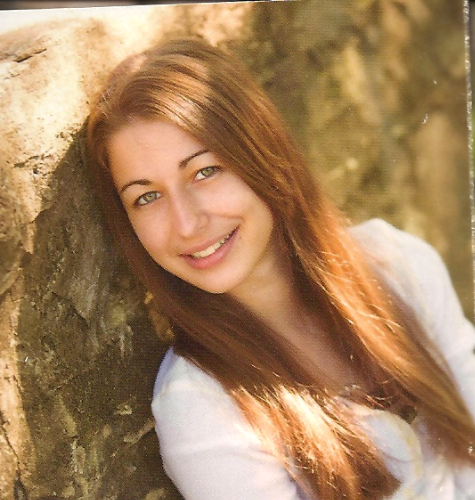
by
Stevie Croisant
On the first day of
August, four English students willingly gave
up an extra twenty days of their summer in
order to participate in Monmouth College’s
SOFIA program. This year, Professor Rob Hale
came up with the idea to have his SOFIA
students design a website about the process
of writing a literary analysis paper.
Seniors
Leanna Waldron and Mary Grzenia along with
freshmen Cassie Burton and Carli Alvarado
participated in the SOFIA program. The four
women worked on starting up
writingaboutliterature.com, which
included writing their own literary analysis
papers.
“[The project] was more
rigorous than I expected,” said Burton.
Burton, who had no idea what to expect about
the SOFIA program early in the summer, was
surprised by the workload the project
required of her especially since she had to
shift her focus from high school writing to
college writing.
Professor Hale gave
each student four pieces of literature to
read including,
To
Kill a Mockingbird, “Story of an Hour,”
“Harlem,” and “Trifles.” After reading the
assigned pieces, Burton and Alvarado were
asked to interview high school teachers and
peers about their experiences on writing
literary analyses.
Alvarado, who is not
actually an English major, was hesitant
about participating in the SOFIA project,
but soon felt comfortable after she learned
what she was going to do.
“As soon as I found out
I had to do a website, I was very excited,”
said Alvarado.
The project began with
the students comparing the interview
results, focusing on trends in answers and
recognizing the issues they were going to
address. The seniors who were focusing on
perfecting their writing skills were also
able to act as mentors to the freshmen.
“The seniors told me
about a lot of resources,” said Alvarado.
“They explained how to navigate the websites
here. They also have been writing a lot
longer than me, so it was nice to have them
critique my papers.”
The writing process
soon began with journal entries,
pre-writing, and drafting happening from all
four of the SOFIA participants. Each
participant took a different story to write
their own 3-5 page literary analysis.
“It was different to
actually come here and get feedback from
college seniors and a professor,” said
Burton. “I feel like I got a head start on
school.”
The four students also
presented the website during the second week
of SOFIA to the students in other
disciplinary areas in order to get feedback.
“A lot of faculty and
students were impressed,” said Grzenia. “No
matter if you’re an English or a science
major, you still have to write papers.”
The website, known as
STEPS (Students Teaching English Paper
Strategies), includes each student's own
writing process, from their notes to their drafts and thesis development. The website
also features a glossary and quotes
from the SOFIA participants regarding their
thoughts about the writing process.
“The hardest part was
making the website from the perspective of
an incoming student, and after gaining three
years of experience, it’s hard to go back,”
said Grzenia. “The freshmen really came up
with a lot of great ideas for that.”
The website, though it
looks finished, is still underway. Grzenia,
is completing the website this semester
under an internship from Professor Hale.
“I like the idea of
creating a site that will actually help
people,” said Grzenia. “Hale offered me the
opportunity to clean up the site’s errors,
make sure the archive section is uniformed,
and finish the glossary of literary terms.”
Grzenia mentioned that
she and the other participants will be
involved in a telephone
conference with other colleges in early
November in order to promote the site. The
website is still in a beta stage and will be
completed, hopefully, by the end of the
semester. The women also hope to spread the
word to other Monmouth College students
about their website.
“You can hear the
student voice in the website,” said Grzenia.
“It’s not a professor’s work. This project
was fun, and I wouldn’t trade that
experience for anything.”
|
|
|
|
|
The Boy Who Lived: Harry Potter and the Deathly Hallows
Book vs Movie
Spoiler Alert!
 by Katie Struck by Katie Struck
I grew up falling in love with Neville
Longbottom, delighting in the pranks of Fred and George Weasley, and
dreaming of receiving my acceptance letter from Hogwarts. From the
first chapter of the first book, I knew that I had to find out what
happened to the hero in the cupboard under the stairs (Even if it
involved hiding my library copy of
Harry Potter and The Goblet
of Fire under my bed so that my mom wouldn’t know I was reading
a book where someone gets killed in the end). I was excited to see
the movies when they came out, but at the same time, I was irked
when I felt like the movies failed to live up to the legacy of the
novels. Harry Potter and the
Deathly Hallows was broken up into two movies, the last of which
came out this summer. While I enjoyed both the movies and
reading the book, I found the book more enjoyable.
While some of the special effects in the
Deathly Hallows movies--the knights of Hogwarts coming to life as a defense measure,
Neville and Seamus blowing up the bridge, and the Shadow puppet
retelling of the three brothers story--were fantastic effects, the
movies missed out on the complex and descriptive details that wove the
story together. For instance, Ron’s leaving the encampment of Harry
and Hermione, while still devastating to any Ron and Hermione fan,
was made less dramatic because the details of the setting (the rain
storm) were not included. Also, Fred’s death in the final movie would
have been more shocking if, like in the book, it had been preceded by
Percy reuniting with the Weasley family. However, since the whole
plotline of Percy turning away from the Weasley family and Harry in
favor of power and respect in the Ministry of Magic was left out of
the movies, this could not happen. The most aggravating loss in plot
for me was the kiss between Ron and Hermione. In the film, it seemed
like just a
build up after destroying a Horcrux, rather than
Hermione not being able to stop herself from kissing Ron
when he suggests that they check on the safety of the house elves
that Hermione had so desperately tried to set free with poorly
knitted hats. movies--the knights of Hogwarts coming to life as a defense measure,
Neville and Seamus blowing up the bridge, and the Shadow puppet
retelling of the three brothers story--were fantastic effects, the
movies missed out on the complex and descriptive details that wove the
story together. For instance, Ron’s leaving the encampment of Harry
and Hermione, while still devastating to any Ron and Hermione fan,
was made less dramatic because the details of the setting (the rain
storm) were not included. Also, Fred’s death in the final movie would
have been more shocking if, like in the book, it had been preceded by
Percy reuniting with the Weasley family. However, since the whole
plotline of Percy turning away from the Weasley family and Harry in
favor of power and respect in the Ministry of Magic was left out of
the movies, this could not happen. The most aggravating loss in plot
for me was the kiss between Ron and Hermione. In the film, it seemed
like just a
build up after destroying a Horcrux, rather than
Hermione not being able to stop herself from kissing Ron
when he suggests that they check on the safety of the house elves
that Hermione had so desperately tried to set free with poorly
knitted hats.
The focus of the
Deathly Hallows movie,
like many of the other
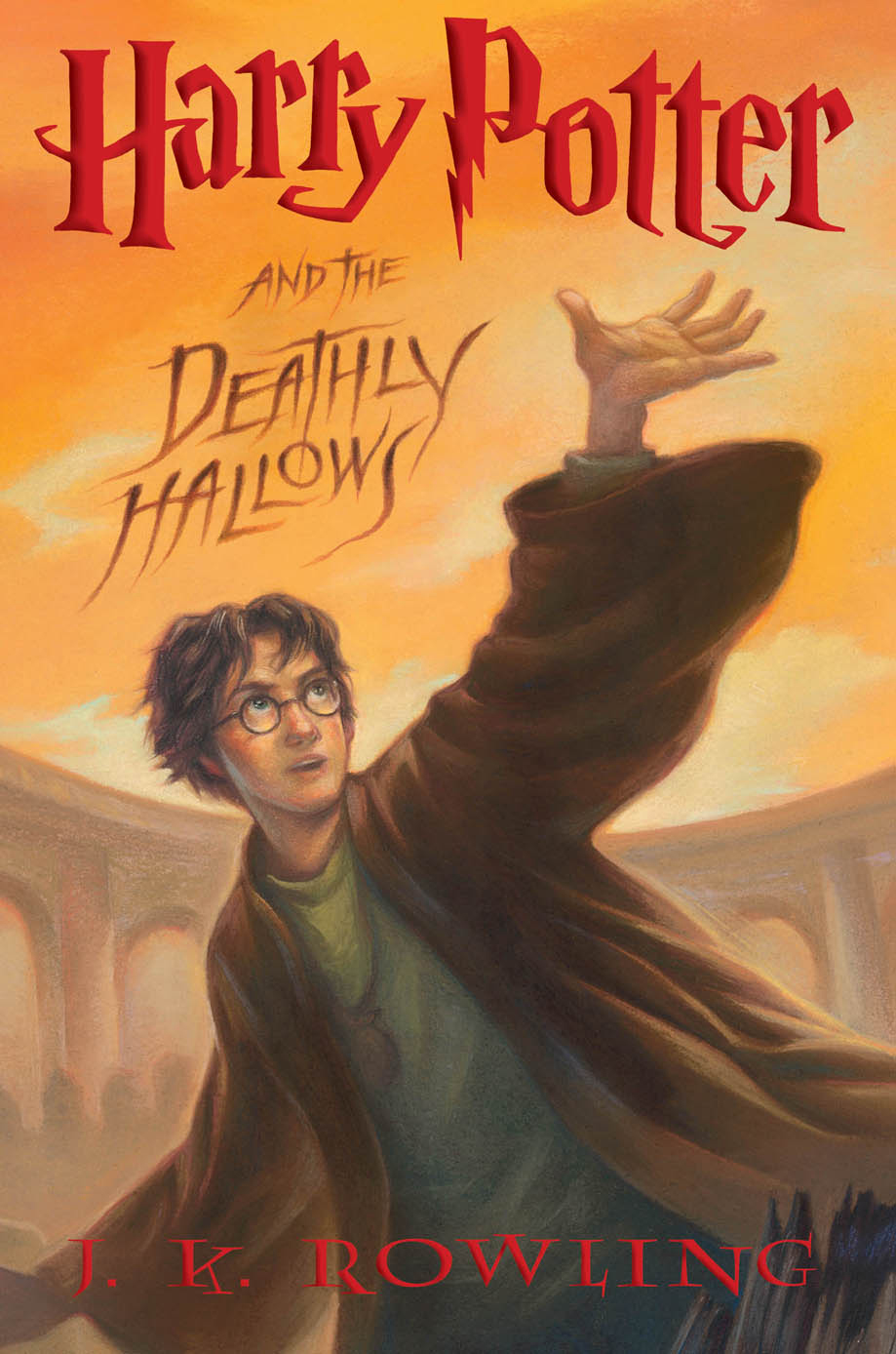 Harry Potter movies, was Harry; however, the
character development of other central characters was much more
apparent in the books. For instance, Neville, as one of my favorite
characters, is consistently caring and courageous from when he
stands up to Harry, Ron, and Hermione in the
Harry Potter and the
Sorcerer’s Stone to when he destroys the last Horcux with the sword of Godric
Gryffindor. In the
Deathly Hallows movie,
his killing of the snake, Voldemort's final horcrux, is less impressive as he does it only after
waking up from being knocked unconscious and after Ron and Hermione
try and fail to kill the snake. Another important character that
fails to be developed because of the film's focus on Harry is Hermione
Granger. In the books, there is an emphasis on Hermione not only
being the brightest witch of her age but also a caring activist for
house elf rights and the rights of any mistreated creature. While
Deathly Hallows did show
some of Hermione’s magical talents through her casting of the
undetectable extension charm on her purse and all the
protective spells on the camp, the compassionate human side of this
strong female role model was sorely lacking. Harry Potter movies, was Harry; however, the
character development of other central characters was much more
apparent in the books. For instance, Neville, as one of my favorite
characters, is consistently caring and courageous from when he
stands up to Harry, Ron, and Hermione in the
Harry Potter and the
Sorcerer’s Stone to when he destroys the last Horcux with the sword of Godric
Gryffindor. In the
Deathly Hallows movie,
his killing of the snake, Voldemort's final horcrux, is less impressive as he does it only after
waking up from being knocked unconscious and after Ron and Hermione
try and fail to kill the snake. Another important character that
fails to be developed because of the film's focus on Harry is Hermione
Granger. In the books, there is an emphasis on Hermione not only
being the brightest witch of her age but also a caring activist for
house elf rights and the rights of any mistreated creature. While
Deathly Hallows did show
some of Hermione’s magical talents through her casting of the
undetectable extension charm on her purse and all the
protective spells on the camp, the compassionate human side of this
strong female role model was sorely lacking.
While I prefer the
Harry Potter and the Deathly
Hallows book to the movie, I will severely miss the series.
Where else can a battle between good and evil be played out so
fascinatingly for all ages as between Lord Voldemort, the ultimate
cruel and heartless Hitler inspired killer, and Harry Potter, the
self-sacrificing school boy who survived an attack on his family
only to return stronger? What other series has grown with me from
grade school to college with characters that became my friends,
heroes, and mentors? I know that what Sirius Black said to Harry
Potter before Harry sacrificed himself in temporary death to
Voldemort holds true for the way the characters of the Harry Potter
series will stick with me: “‘We are a part of you’ said Sirius,
‘Invisible to anyone else’” (700).
|
|
|
|
Survey Says:
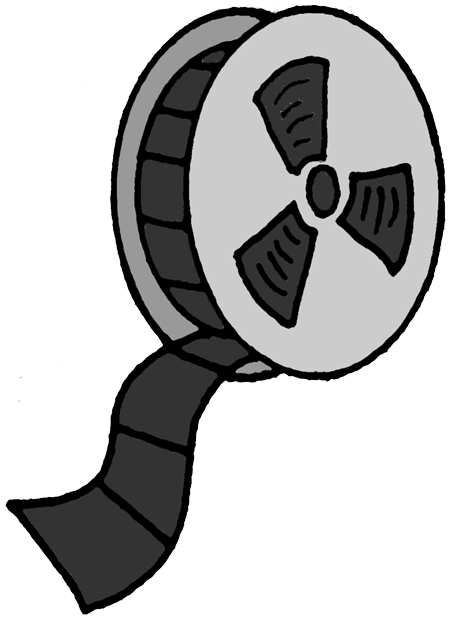
What is your
favorite book-to-movie adaptation?
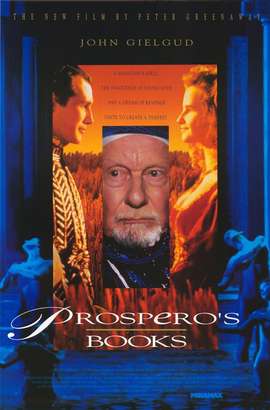
Prospero’s Books/
The Tempest
- Marlo Belschner
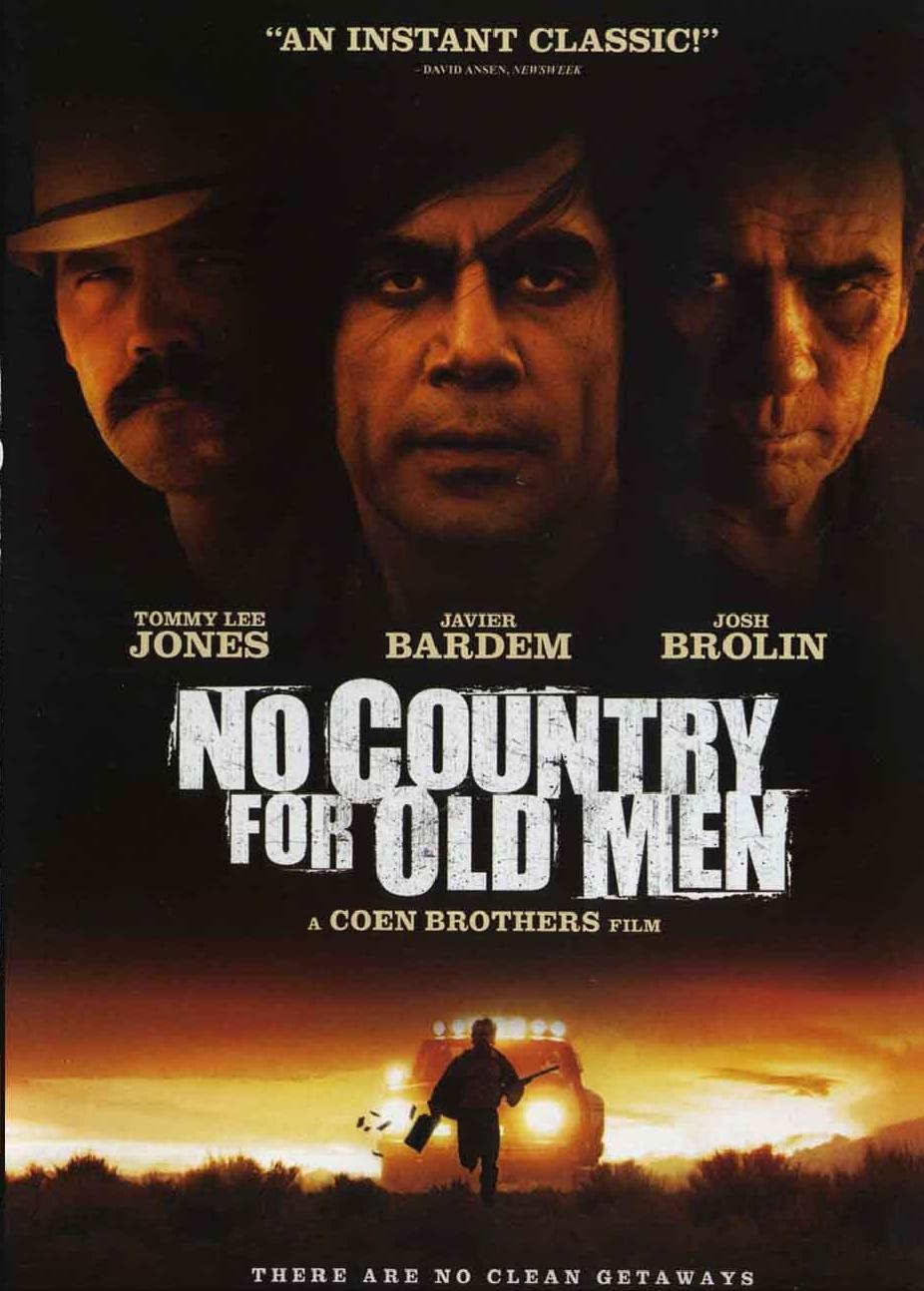
No Country For Old Men
- Dan Pitts
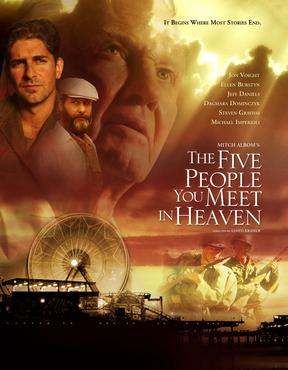
My favorite book to movie
adaptation is The Five People You Meet in Heaven by
Mitch Album.
The visual interpretations of the
character and setting descriptions of the book fit perfectly
with what I pictured when I first read it. Also, it follows
the plot line of the book very well. The movie and book made
me laugh and cry and continue to do so every time I read or
watch it.
-Katie Struck
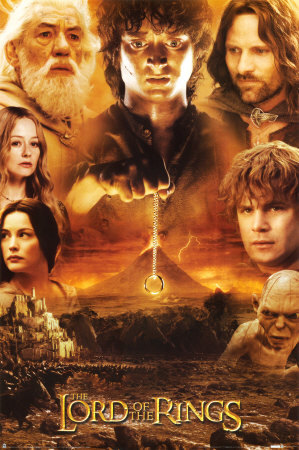
Lord of the Rings. I don’t think is
really a question that needs asking, is it? Lord of the
Rings. My precious.
-Robert Cook
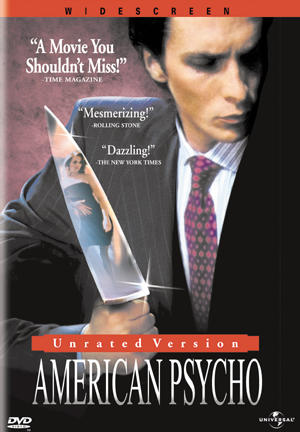
Though I have a deep love for many of the movies and novels that
are already on this list, one that wasn't mentioned that I
absolutely love is American Psycho. I think the film
(and particularly Christian Bale's performance) perfectly
captures the dark humor and wonderfully depraved and creepy
nature of Patrick Bateman.
-Leanna Waldron
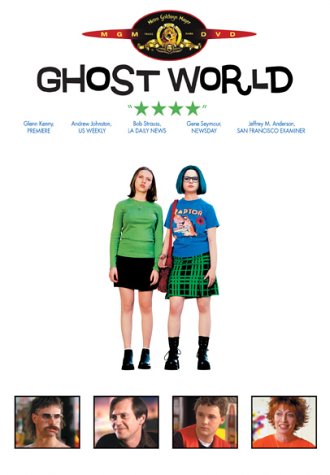
I really loved what Terry
Zwigoff did with Daniel Clowes' poignant graphic novel
'Ghost World'. The film is a very loose adaptation of the
book and it is better because of it. While the book reminds
you of the strain high-school friendships can be, the movie
is brutally honest about a wide range of topics from
friendship, sex, art appreciation and honesty. Both are well
worth the time to read and watch.
-Alex Nall
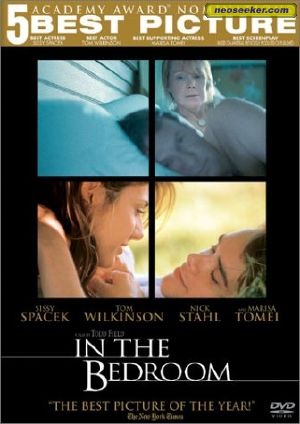
This one's
easy: Andre Dubus's "Killings" adapted into In The
Bedroom.
-Erika Solberg
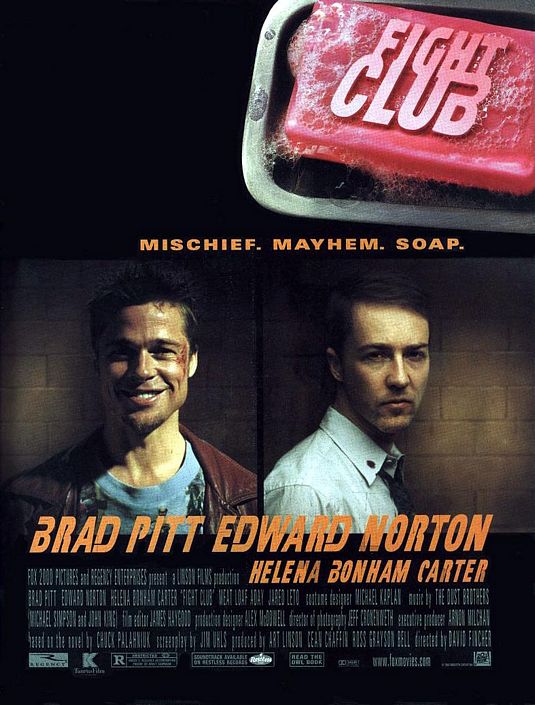
David Fincher's cult classic
Fight Club (1999), adapted from the even better novel of the
same name by Chuck Palahniuk.
-Alex Kane
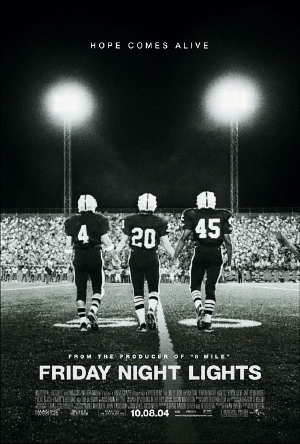
Friday Night Lights; my
emotional reaction to the movie is so intense that I don't even
worry about how drastically they changed it from the book.
-Jackie Deskovich
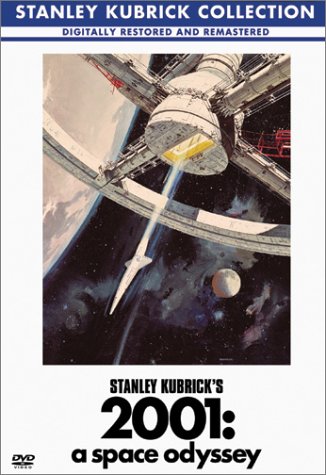
A great book-to-movie is 2001: A Space Odyssey. Though
the book is still better than the movie, director
Stanley Kubrick rewards the reader through an absence of
dialogue. Without reading Clarke’s book prior to viewing
the film, it is hard to tell what in the hell is going
on in the movie. The book gives depth and political
context to space travel, as well as mystifies. The movie
is more of a strange trip; I use that as a pun.
-Ryan Bronaugh
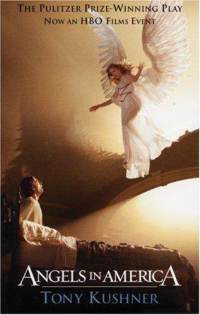
Angels in America: A Gay Fantasia on
National Themes by Tony Kushner
-Suzanne Barber
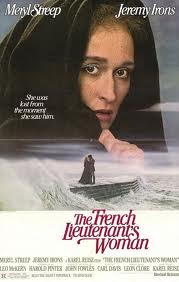
Definitely,
The French Lieutenant’s Woman
-Rob Hale
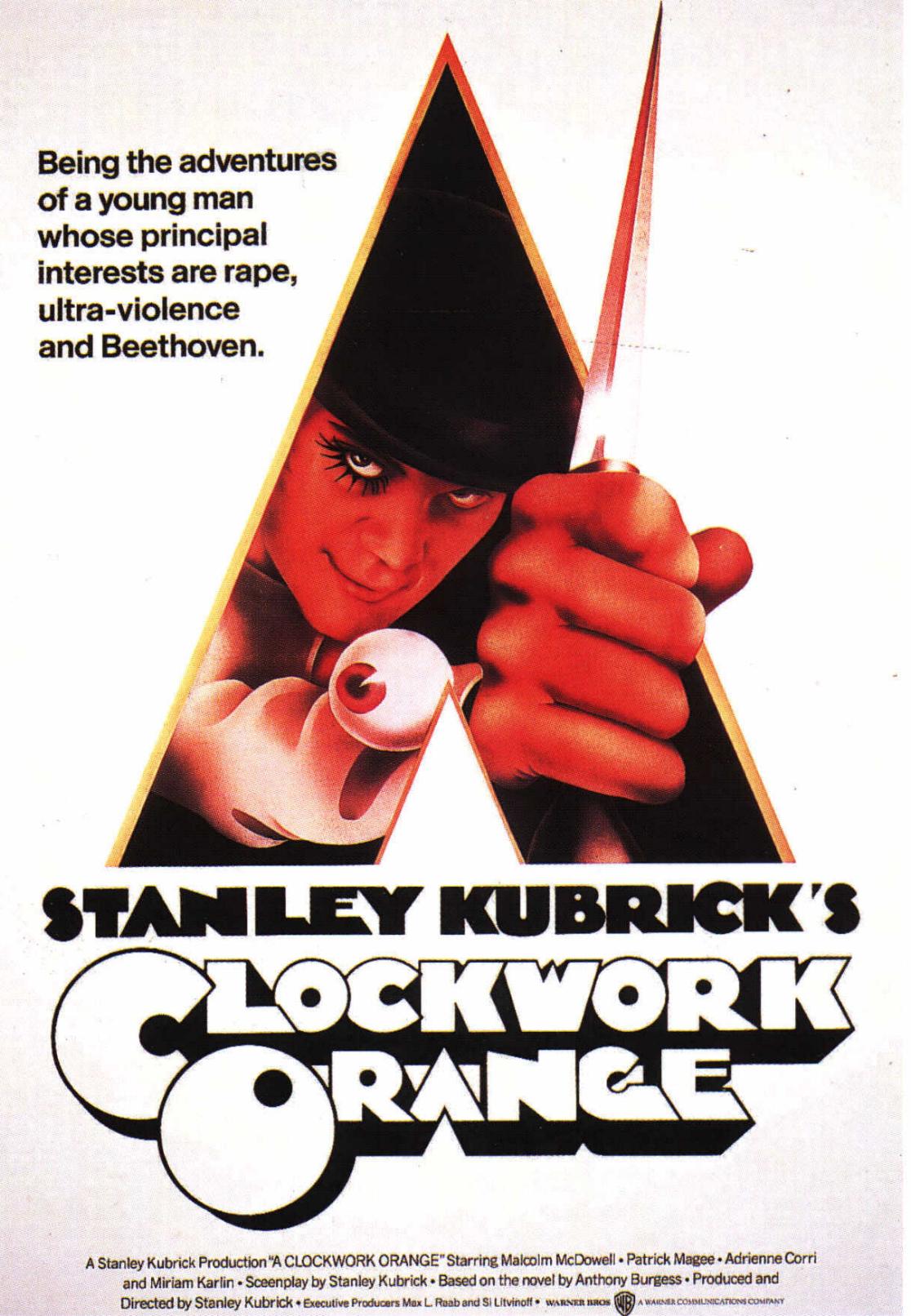
A
Clockwork Orange
-Mark Willhardt
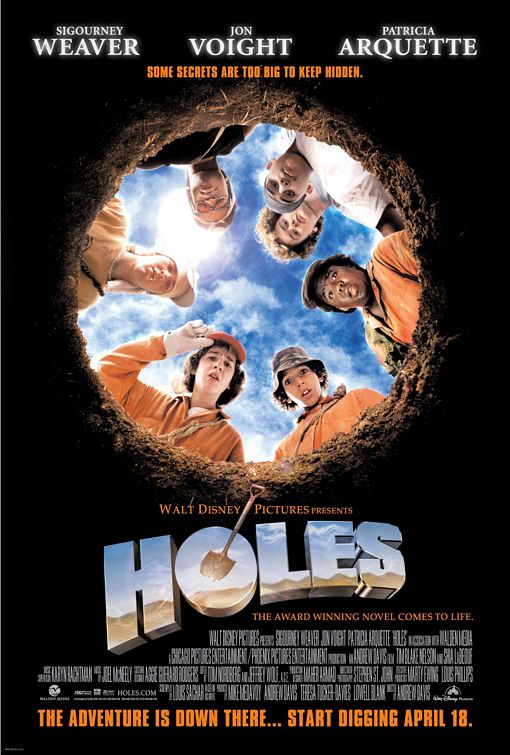 Probably Holes
by Louis Sachar. It's definitely the most accurate movie
adaptation I've seen.
Probably Holes
by Louis Sachar. It's definitely the most accurate movie
adaptation I've seen.
-Cassie Burton
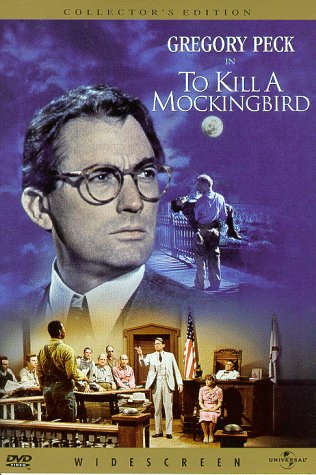
Mine would be To
Kill a Mockingbird. Though taking liberties with
the novel, the movie really brings to life the
characters.
-Kevin Roberts
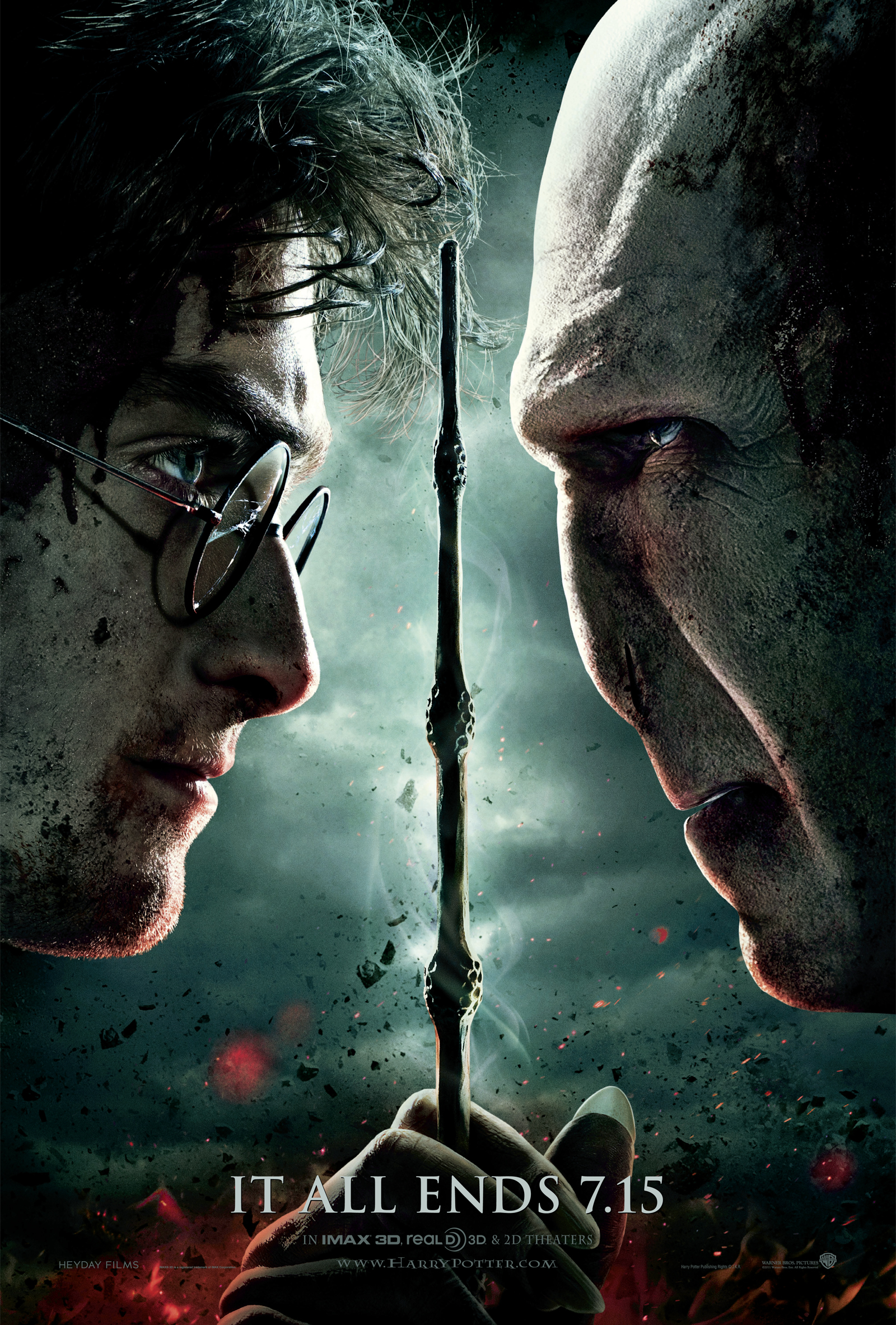 Harry Potter, obviously.
Harry Potter, obviously.
-Rissa Inman
announcements!
-
Don't forget about
the Writing Center when you're working on those
troublesome papers! Located on the third floor of
the Mellinger Learning Center, tutors are available
Monday -Thursday 3-5pm and Sunday - Thursday 7-10pm!
-
Good luck to
everyone on your midterms and enjoy Fall Break!
|
|

|


 by Katie
Struck
by Katie
Struck

 Harry Potter movies, was Harry; however, the
character development of other central characters was much more
apparent in the books. For instance, Neville, as one of my favorite
characters, is consistently caring and courageous from when he
stands up to Harry, Ron, and Hermione in the
Harry Potter and the
Sorcerer’s Stone to when he destroys the last Horcux with the sword of Godric
Gryffindor. In the
Deathly Hallows movie,
his killing of the snake, Voldemort's final horcrux, is less impressive as he does it only after
waking up from being knocked unconscious and after Ron and Hermione
try and fail to kill the snake. Another important character that
fails to be developed because of the film's focus on Harry is Hermione
Granger. In the books, there is an emphasis on Hermione not only
being the brightest witch of her age but also a caring activist for
house elf rights and the rights of any mistreated creature. While
Deathly Hallows did show
some of Hermione’s magical talents through her casting of the
undetectable extension charm on her purse and all the
protective spells on the camp, the compassionate human side of this
strong female role model was sorely lacking.
Harry Potter movies, was Harry; however, the
character development of other central characters was much more
apparent in the books. For instance, Neville, as one of my favorite
characters, is consistently caring and courageous from when he
stands up to Harry, Ron, and Hermione in the
Harry Potter and the
Sorcerer’s Stone to when he destroys the last Horcux with the sword of Godric
Gryffindor. In the
Deathly Hallows movie,
his killing of the snake, Voldemort's final horcrux, is less impressive as he does it only after
waking up from being knocked unconscious and after Ron and Hermione
try and fail to kill the snake. Another important character that
fails to be developed because of the film's focus on Harry is Hermione
Granger. In the books, there is an emphasis on Hermione not only
being the brightest witch of her age but also a caring activist for
house elf rights and the rights of any mistreated creature. While
Deathly Hallows did show
some of Hermione’s magical talents through her casting of the
undetectable extension charm on her purse and all the
protective spells on the camp, the compassionate human side of this
strong female role model was sorely lacking. 















